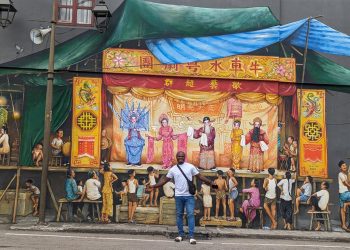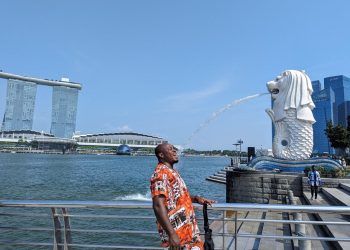Pulau Ubin, a serene island located just off the northeastern coast of mainland Singapore, is not only a haven for tranquility but also a sanctuary for rare and endangered species of flora and fauna.
Nature enthusiasts are in for a treat as they explore the lush landscapes and diverse ecosystems that make Pulau Ubin a unique destination.
Rich Biodiversity
Pulau Ubin boasts an impressive biodiversity, with over 786 native plants, 242 bird species, 201 butterfly species, 89 mammal species, and a variety of reptiles and amphibians.
The island’s commitment to conservation has made it a treasure trove for rare animals, contributing to Singapore’s efforts in preserving its natural heritage.
Rare Animals on Pulau Ubin
Among the rare animals that call Pulau Ubin home are the Greater Mousedeer, Ashy Roundleaf Bat, Lesser False Vampire Bat, Straw-headed Bulbul, Mangrove Pitta, Barred Eagle Owl, Brown Wood Owl, and the Oriental Small-clawed Otter.
These creatures add to the island’s allure, offering visitors a glimpse into the wonders of Singapore’s wildlife.
Notably, Pulau Ubin hosts the largest mangrove areas in Singapore. Almost all mangrove plant species known to Singapore thrive here, including the incredibly rare “Eye of the Crocodile,” making it a globally significant site for mangrove conservation.
Exploring on Foot
Walking around Pulau Ubin is the perfect way to immerse yourself in its natural beauty. The island features several walking trails, allowing visitors to explore at a leisurely pace.
One highlight is the Chek Jawa Wetlands, a protected area that encompasses six major habitats, including mangroves, coastal forests, and seagrass lagoons.
As you navigate the walking trails, be prepared to encounter the island’s diverse flora and fauna.
Keep a respectful distance from the wildlife, take only memories, and leave no trace to ensure the conservation of this precious ecosystem.
Visitors are encouraged to take precautions, wear suitable footwear, and be mindful of their surroundings.
The walking trails offer an intimate experience with nature, allowing you to appreciate the island’s rare animals and vibrant plant life.
Still have some travel questions? Ask in our Travel WhatsApp Group.








